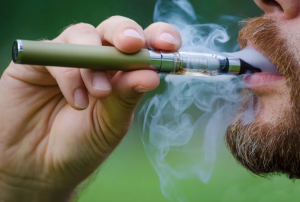Creating a Relapse Prevention Plan That Works


For individuals recovering from addiction, the journey towards sobriety is often marked by triumphs and challenges alike. One crucial aspect of maintaining sobriety is the development of a relapse prevention plan tailored to individual needs and circumstances. Whether you’re combating substance abuse or overcoming other addictive behaviors, having a solid relapse prevention strategy in place can significantly enhance your chances of long-term success. In this blog post, we’ll delve into the essential elements of crafting a relapse prevention plan that works, specifically tailored for the audience in the USA.
Understanding Triggers
Recognizing the triggers that can lead to relapse is fundamental. Triggers can vary widely from person to person and may include stress, negative emotions, social situations, or even specific places and people associated with past substance use. Take time to identify your triggers, whether through self-reflection or with the help of a therapist or support group.
Developing Coping Strategies
Once you’ve identified your triggers, it’s essential to develop coping strategies to effectively manage them. This may involve practicing stress-reduction techniques such as mindfulness meditation, deep breathing exercises, or engaging in healthy activities like exercise or hobbies. Additionally, having a support network of friends, family, or support groups can provide invaluable assistance during challenging times.
Building Healthy Habits
A key component of relapse prevention is replacing old, unhealthy habits with new, positive ones. Establishing a routine that includes regular exercise, nutritious eating, and sufficient sleep can contribute to overall well-being and resilience against relapse. Incorporating activities that bring joy and fulfillment into your daily life can also help reduce the risk of turning to substances or other addictive behaviors.
Creating a Support System
Surrounding yourself with supportive individuals who understand your journey and can offer encouragement and accountability is crucial. This may include family members, friends, sponsors, therapists, or fellow members of a support group such as Alcoholics Anonymous or Narcotics Anonymous. Regularly attending meetings or therapy sessions can help reinforce your commitment to sobriety and provide a safe space to discuss challenges and successes.
Developing an Emergency Plan
Despite your best efforts, unexpected challenges or cravings may arise. Having an emergency plan in place can help you navigate these situations effectively. Your plan might include reaching out to a trusted friend or sponsor, attending a support group meeting, or engaging in a distraction technique such as going for a walk or practicing mindfulness.
Monitoring Progress and Adjusting as Needed
Regularly monitoring your progress and reassessing your relapse prevention plan is essential for long-term success. Keep track of your triggers, coping strategies, and any changes in your emotional or mental health. Be willing to adjust your plan as needed based on what does or doesn’t work for you.
Conclusion
In conclusion, creating a relapse prevention plan tailored to your unique needs and circumstances is essential for maintaining sobriety and overcoming addiction. By understanding your triggers, developing coping strategies, building healthy habits, cultivating a support system, creating an emergency plan, and monitoring your progress, you can significantly enhance your resilience against relapse. Remember that recovery is a journey, and setbacks are a natural part of the process. With determination, perseverance, and the right support system in place, you can achieve lasting sobriety and live a fulfilling life free from addiction.
If you’re serious about recovery, choose Casa Serena. Our lifetime aftercare program encourages long-lasting recovery.





